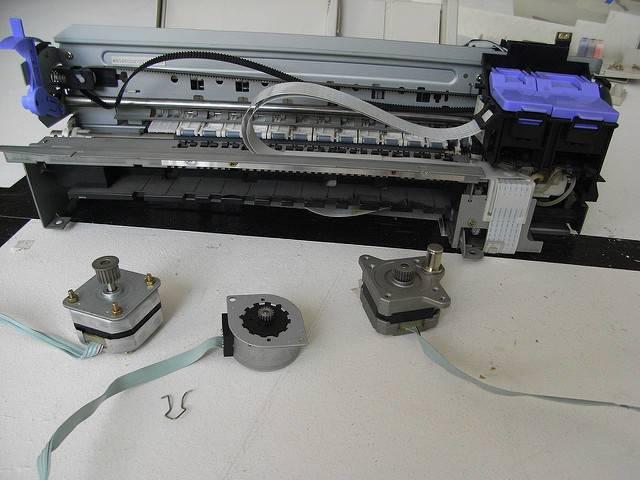
Whether it has become the norm in the manufacturing of home appliances or smartphones, planned obsolescence is both bad for consumers and bad for the environment. The concept that products should be designed so they will become quickly unwanted or unusable has become the reality in many industries. Of course, far more bells and whistles are found in today's electronics, compared to those within that Ma Bell telephone at your grandparents' home or those old washing machines in your apartment building's laundry room. Of course, more features mean more things can go wrong at a much faster pace - and manufacturing these goods in countries where labor is cheap exacerbates this problem.
As a result, consumers either spend more on repairs or new gadgets and durable goods, while more e-waste and mountains of plastic end up in landfill.
A French legal organization, Halte à L’Obsolescence Programmêe (HOP), says it has seen enough of this trend, particularly when it comes to printer manufacturers. Recently, HOP filed a lawsuit in a local French court against some of the world's most widely-known brands. The lawsuit alleges that Brother, Canon, Epson and HP are amongst companies deliberately shortening the lifespan of both printers and cartridges.
The litigation claims these companies' alleged business practice of manufacturing goods that purposefully stop working not long after their purchase violates a law French legislators passed in 2015. The Consumer Code in France explicitly says:
"The practice of planned obsolescence, defined by the use of techniques from those responsible for placing a product on the market, is for the product to deliberately have a reduced lifetime in order to increase its replacement rate."
Each of the companies named in the lawsuit have either refused to comment publicly on the lawsuit or have dismissed HOP's allegations. Watch for Epson in particular to pull out all the legal stops, as it boasts of having about 40 percent of Europe's business market. As is the case of any manufacturer, Epson claims its products are "high quality and fully-featured."
Not that it is hard to find folks who disagree with Epson's assessment of its printers, or with the performance of any brand, for that matter.
Planned obsolescence is hardly new. As J.B. MacKinnon of the New Yorker explained last year, historical evidence suggests incandescent light bulb manufacturers gathered almost 100 years ago to discuss a "quality" standard for these bulbs so they would last 1,000 hours. But that supposed innovation actually caused bulbs' lifespans to become shorter than older versions. The mindset back then was that unless a company was in the coffin business, it was a bad business strategy to sell anything to customer only one time. Economic theory also suggested long-lasting products would also be bad for the labor market as workers would lose their jobs at the factories.
Now, however, we live in a world inundated with waste, and consumers are spending more money on technologically advanced products, while they replace them far more often.
HOP hopes to sends a message and could inspire other consumer and environmental groups to keep this drumbeat going. France's consumer law targeting planned obsolescence sets a penalty of penalty of two years imprisonment and a fine starting at €300,000 ($353,000). We will not see marketers and engineers behind bars anytime soon, but the message is clear: Stop ripping off consumers. As HOP's announcement concluded, "We denounce the continuous increase in the price of cartridges, which at €2,062 per liter of ink is twice as expensive as Chanel No. 5 perfume!"
Image credit: Binary Koala/Flickr

Leon Kaye has written for 3p since 2010 and become executive editor in 2018. His previous work includes writing for the Guardian as well as other online and print publications. In addition, he's worked in sales executive roles within technology and financial research companies, as well as for a public relations firm, for which he consulted with one of the globe’s leading sustainability initiatives. Currently living in Central California, he’s traveled to 70-plus countries and has lived and worked in South Korea, the United Arab Emirates and Uruguay.
Leon’s an alum of Fresno State, the University of Maryland, Baltimore County and the University of Southern California's Marshall Business School. He enjoys traveling abroad as well as exploring California’s Central Coast and the Sierra Nevadas.














